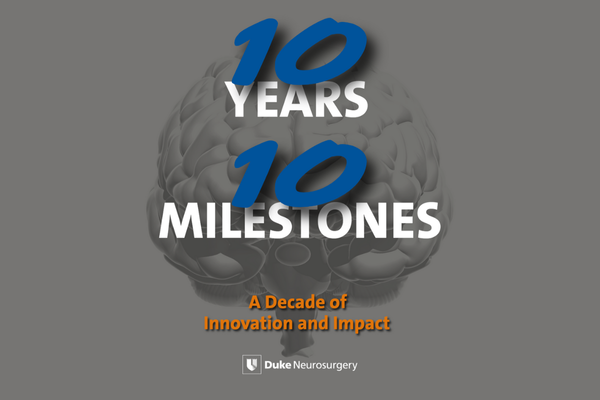
Duke Neurosurgery
Duke represents excellence in neurosurgical care, research, and education. A team of highly skilled neurosurgeons provide comprehensive care for patients in all sub-specialties. Clinicians embrace a multidisciplinary, team-based approach to care, with a commitment to the very best patient outcomes. Duke Neurosurgery excels at translational research, moving innovations rapidly from bench to bedside.
New in Duke Neurosurgery
Duke Neurosurgery became a full department in the Duke School of Medicine in 2015, having previously been a division in the Department of Surgery.
Duke Neurosurgery resident Alankrita Raghavan, MD, has been named the 2025 Snyderman Award winner for her project, “The Surgical Coaching Program: Developing a One-on-One Technical Curriculum for Junior Neurosurgical Residents.”
Rep. Valerie Foushee (NC-04) Monday reintroduced a resolution designating June as Brain and Spine Metastasis Awareness Month.
Brian FitzGerald of South Carolina spent the summer of 2024 looking for answers.










